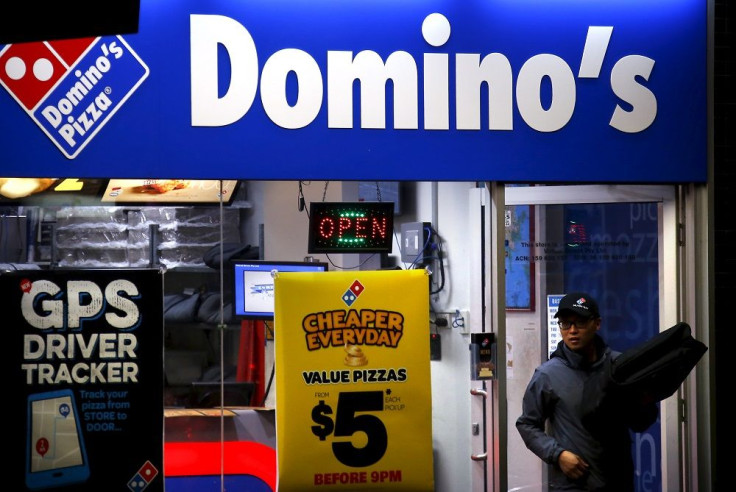Deutsche Bank estimates 24% drop in Domino’s Pizza’s profitability if Australian operations forced to pay weekend, after-hour penalty rate

Whenever government mandates an increase in the minimum wage rate, business groups always oppose it and warn of massive job losses like what happened in June 2012. Now, a Fair Work Commission (FWC) decision was identified as a possible source of an expected drop in profitability for a pizza chain in Australia.
The Australian reported that FWC nullified recently the enterprise agreement of Coles for excluding sufficient penalty rates. The FWC decision led Deutsche Bank to review enterprise agreements (EA) among consumer companies, and it found that Domino's Pizza is the most susceptible to higher wage cost.
Because the food chain’s EA expired three years ago and weekend penalty rates were excluded by the award, Domino’s Pizza in Australia would need a catch up, says Michael Simotas, retail analyst of the bank. IF FWC forces the company to pay the weekend and after-hour penalty rates, Simotas estimates Domino’s Pizza’s profitability would plunge 24 percent.
But Simotas points out that despite the impact on the pizza chain’s profitability, at some point, Domino’s Pizza would need to pay the penalty rates despite its significant impact on Australian system profitability. Even if it is a franchise, the franchisee-company would need to dip into its savings to fund the expected jump in wages of workers.
However, Simotas suggests that Domino’s Pizza Enterprise would need to share the pain of higher wages because profitability of a franchisee is a key element of its success. If the added costs are not shared and profitability drops significantly, the franchisee may hesitate to further invest which could eventually reduce sales growth and make value range pizzas “no longer be a viable way to drive volumes.”
In a note in 2011, Deutsche Bank research analyst described Domino’s Pizza Enterprise – the master franchise holder – as offering good value on a risk reward basis. At that time, the enterprise had 535 outlets in Australia and New Zealand which had expanded to 606 franchised stores in fiscal 2016 and 64 corporate-owned stores.
Simotas estimates the after-hours penalty rates would drive the franchisee’s wage expense by 14 percent. He also notes that other fast food chains, such as Pizza Hut, KFC and McDonald’s do not pay weekend penalty rates, but these dining establishments pay higher salaries than Domino’s Pizza.
VIDEO: Save our Weekend: Protect Penalty Rates






